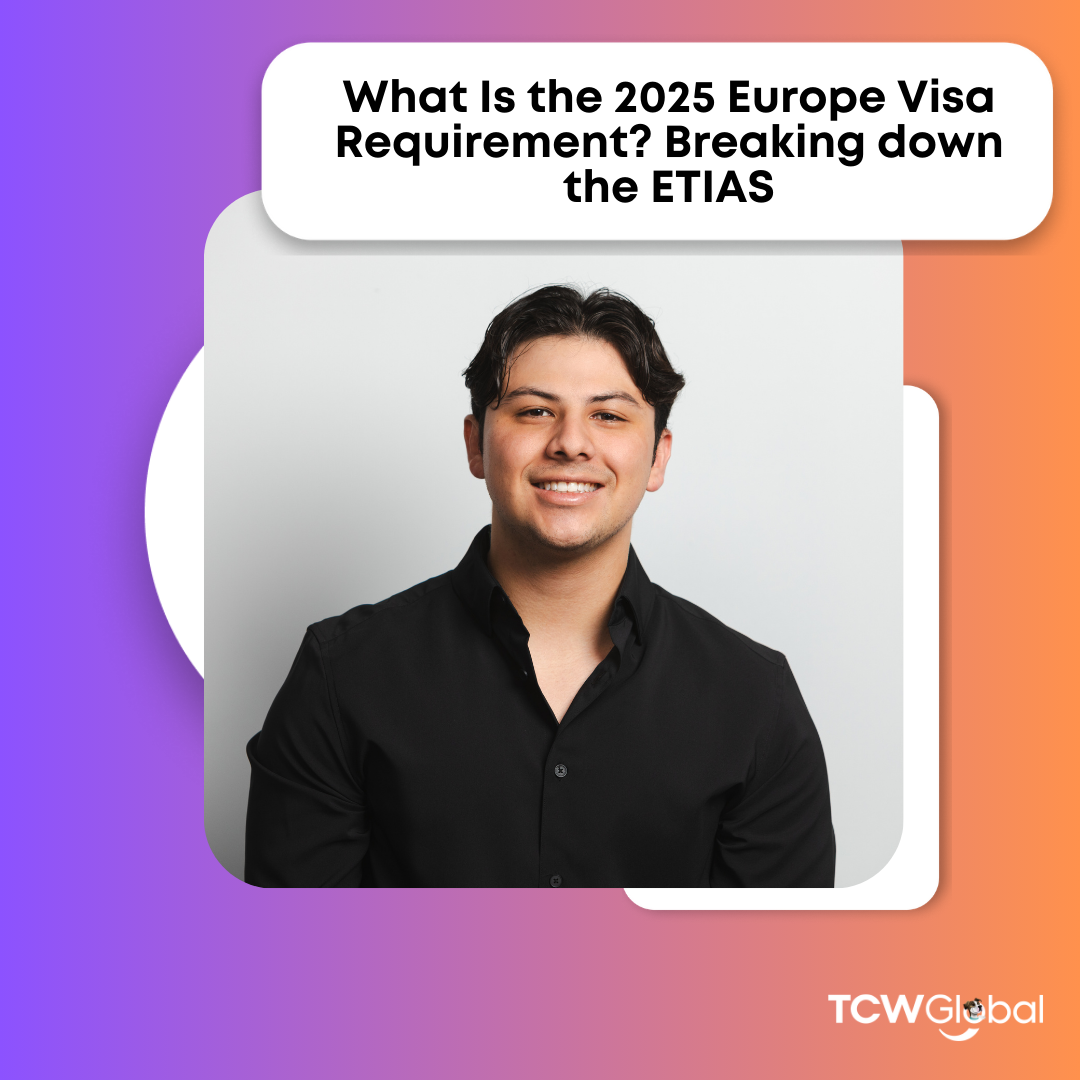Flying to Europe in 2025? Here's What New Visa Rules Mean for You
December 19, 2024

Craving a pain au chocolat on the Champs-Élysées? Planning a business meeting overlooking the canals of Amsterdam? Europe is a hub for culture, opportunity, and business expansion—but starting in 2025, new visa requirements could impact how easily travelers from the U.S. and other visa-exempt countries enter the region.
The European Travel Information and Authorization System (ETIAS) introduces a quick but mandatory step for Americans and others visiting Europe’s Schengen Zone. Whether you’re sending employees for interviews, site visits, or high-stakes meetings, this new process makes preparation essential to avoid delays and keep your operations running smoothly.
What Is the 2025 Europe Visa Requirement?
Starting in mid-2025, travelers from over 60 visa-exempt countries will need ETIAS authorization to visit Europe’s Schengen Zone. Unlike a traditional visa, ETIAS requires an online application, a small fee, and a short approval process—no embassy visits or lengthy paperwork involved.
For businesses, this means incorporating a new but manageable step into your travel planning. It’s a minor adjustment, but one with significant implications for global workforce mobility.
Why The 2025 ETIAS Requirement Matters for Your Business
The ETIAS requirements might seem like a small adjustment, but they have significant implications for businesses that rely on international mobility. Ensuring employees, candidates, or executives can travel without delays is important for maintaining seamless operations and meeting strategic goals.
From last-minute site visits to onboarding international talent, here are a few reasons why planning ahead with the ETIAS is essential:
- Simplifying Short-Term Travel: Whether it’s flying a candidate to Europe for an interview or sending a team member for training, ETIAS adds a new step. Staying ahead ensures your schedule stays on track.
- Supporting Relocation and Expansion: Relocating employees or evaluating new business locations often involves preliminary visits. These trips require ETIAS approval to proceed smoothly.
- Maintaining Global Compliance: Ensuring your team meets the new requirements avoids unnecessary disruptions, protects your reputation, and helps you stay in compliance with European travel laws.
What Businesses Need to Know About the ETIAS Visa Requirement
Who Needs ETIAS Authorization?
Travelers from over 60 visa-exempt countries, including the U.S., Canada, and Australia, will need ETIAS approval to enter Europe’s Schengen Zone. This applies to short-term trips for tourism, business, or other purposes lasting up to 90 days within a 180-day period.
What Does the ETIAS Process Involve?
The application process is straightforward. Travelers must complete an online form, pay a small fee (around €7), and wait for approval, which typically takes minutes to a few days. Once approved, the ETIAS authorization is valid for three years or until the traveler’s passport expires.
When Should You Apply?
While ETIAS approval is quick, it’s best to apply at least a few weeks before travel to avoid any last-minute issues. Encourage employees and executives to include this step early in their travel planning.
Does This Affect Business Travel?
Yes, ETIAS applies to any short-term travel within the Schengen Zone, whether it’s for attending meetings, conducting training sessions, or onboarding international talent. For businesses relying on international mobility, this extra step must be factored into logistics.
What Happens Without ETIAS Approval?
Travelers without ETIAS authorization will be denied entry at the border, causing significant disruptions to travel plans. For businesses, this could mean missed opportunities or rescheduled meetings!
How to Stay Ahead
Navigating the new ETIAS requirements doesn’t have to be complicated. By staying informed and incorporating this step into your travel planning, your business can continue to operate globally without disruption.
Learn more about how TCWGlobal supports global workforce mobility!
